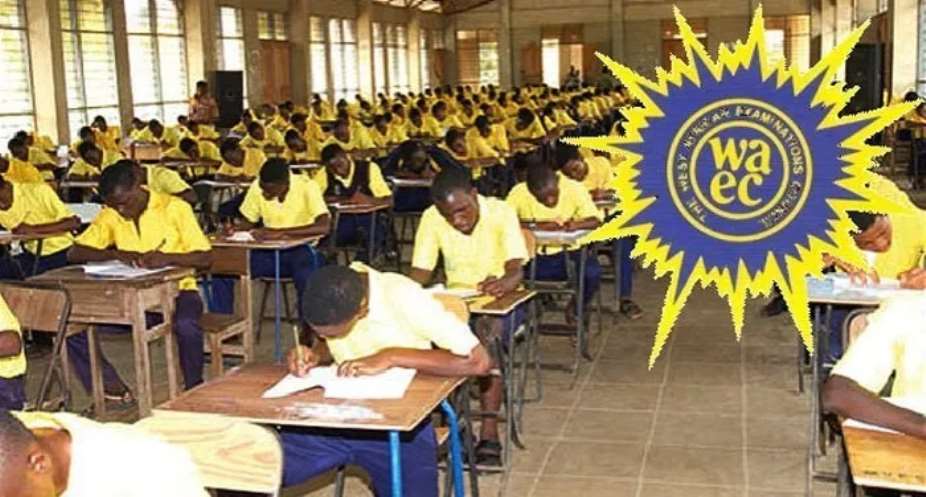As observers of the education landscape in Ghana, it can be categorically stated that the educational system of Ghana is witnessing a slow death in all areas. Teacher education, curriculum, educational policy, educational administration, educational leadership, educational finance, teacher salaries and benefits and many more areas germane to the proper functioning of an effective and efficient system entrusted with the sole aim of socialization of the citizens.
For over a decade we have been researching why Ghana has failing standards echoed by many across the board. In recent conversations with parents, who lamented the low standards, we wanted to understand their perspectives on what they understood as low standards and failing standards. We concluded that they were referring to low pass rates on standardized tests such as Basic Education Certificate Examination, poor performance by law students on their final bar examinations, poor pass rates of students in other professional examinations administered by the various colleges and universities in Ghana.
Where do we begin to understand the death of education in Ghana? Who are the major stakeholders of education in Ghana? Parents or the Central Government? How about the Districts? How about the Churches and Businesses that employ graduates of the various school systems in the country? We are of the view that education is a socializing tool hence all citizens are stakeholders and must be concerned when the educational system is unable to perform as expected. For as a society we must be obsessed with citizens’ level of education and training and their abilities to push back the frontiers of human ignorance through innovations in all sectors of our economy. Unfortunately, a dying educational system offers few such opportunities for all.
A parent lamented that if the educational system were “good” no teacher will have a stall at night to sell “kaya tea” “dog chains”, “obroni we wu” or struggle to send their wards to private schools where the charges are astronomical. Another parent lamented that her daughter completed a professional nursing training education 2 years ago and is still waiting for a job from the Ministry of Health. A banker lamented that “I have in the past tried to hire products of the various universities who have stella qualities on paper but when interviewed, I was left wondering if they really attended any university or college.”
Are Ghanaian educators doing a disservice to society by passing students who do not deserve to pass and thus producing a glut in the system with the sole aim of equal access? Are political heads the culprits in the dying system of education in Ghana? Does Ghana have grade inflation? Is teacher performance based on the number of students who pass or are promoted to the next level? In a dying educational system, teacher morale is so low that there are no teacher accountabilities as policy makers and educational administrators cannot enforce system Standard Procedures for the system to function. Ethical standards are thrown out with the bath water and regulatory agencies that serve as education watchdogs are trampled upon by the giants in Government.
In a dying educational system, acceptance into various programs and especially much sought after professional programs goes to the highest bidder regardless of ability on standardized examinations. In a dying educational system, credentials are not a gateway for jobs or innovations. In a dying educational system, schools become outdated as they fail to move the country forward in all spheres of human endeavor. In a dying system teacher, and other educational professionals are less appreciated and hence abandon their chosen profession for good. Are stakeholders to blame for a dying educational system? We are of the view that the Central Government through its poor policies on education is to blame for a dying educational system in Ghana. We propose that primary and secondary education should be locally controlled. We propose that the payment formula for education should encompass the central government, local authorities, and religious organizations. We propose that teacher certification should be detached from the various education colleges and universities and placed in the hands of a Certification Body established by an Act of Parliament. We propose that Parliament should review Basic Education policies every 6 years or periodically as feasible with input from educational professionals as Subject Matter Experts, parents, opinion leaders, political heads, and other professionals. The case of JSS and SSS are good examples that in our next installment shall be discussed in detail.
By
Augustine M. Amenyah EdD., MPH, formerly at Kennesaw State University Georgia. USA
Mr. Karim Seini., formerly at UNESCO-Bamako, Mali.
Moses Kofi Yahaya, PhD., formerly at Fort Valley State University USA.





 Cecilia Dapaah: Reasons behind AG’s advice to EOCO not grounded in law – Martin ...
Cecilia Dapaah: Reasons behind AG’s advice to EOCO not grounded in law – Martin ...
 NPP should have reported Kingsley Nyarko’s conduct to police – Inusah Fuseini
NPP should have reported Kingsley Nyarko’s conduct to police – Inusah Fuseini
 Akufo-Addo cuts sod for MIIF Technical Training Centre
Akufo-Addo cuts sod for MIIF Technical Training Centre
 NPP didn’t struggle to win Ejisu by-election – Samuel Ayeh-Paye
NPP didn’t struggle to win Ejisu by-election – Samuel Ayeh-Paye
 A/R: Achiase Chief arrested for acid attack on community members
A/R: Achiase Chief arrested for acid attack on community members
 Naa Ayemoede returns to school
Naa Ayemoede returns to school
 Dadieso residents block Accra-Kumasi highway
Dadieso residents block Accra-Kumasi highway
 Kasoa soldier killer remanded
Kasoa soldier killer remanded
 Rashid Pelpuo slams Opoku Prempeh for denying dumsor
Rashid Pelpuo slams Opoku Prempeh for denying dumsor
